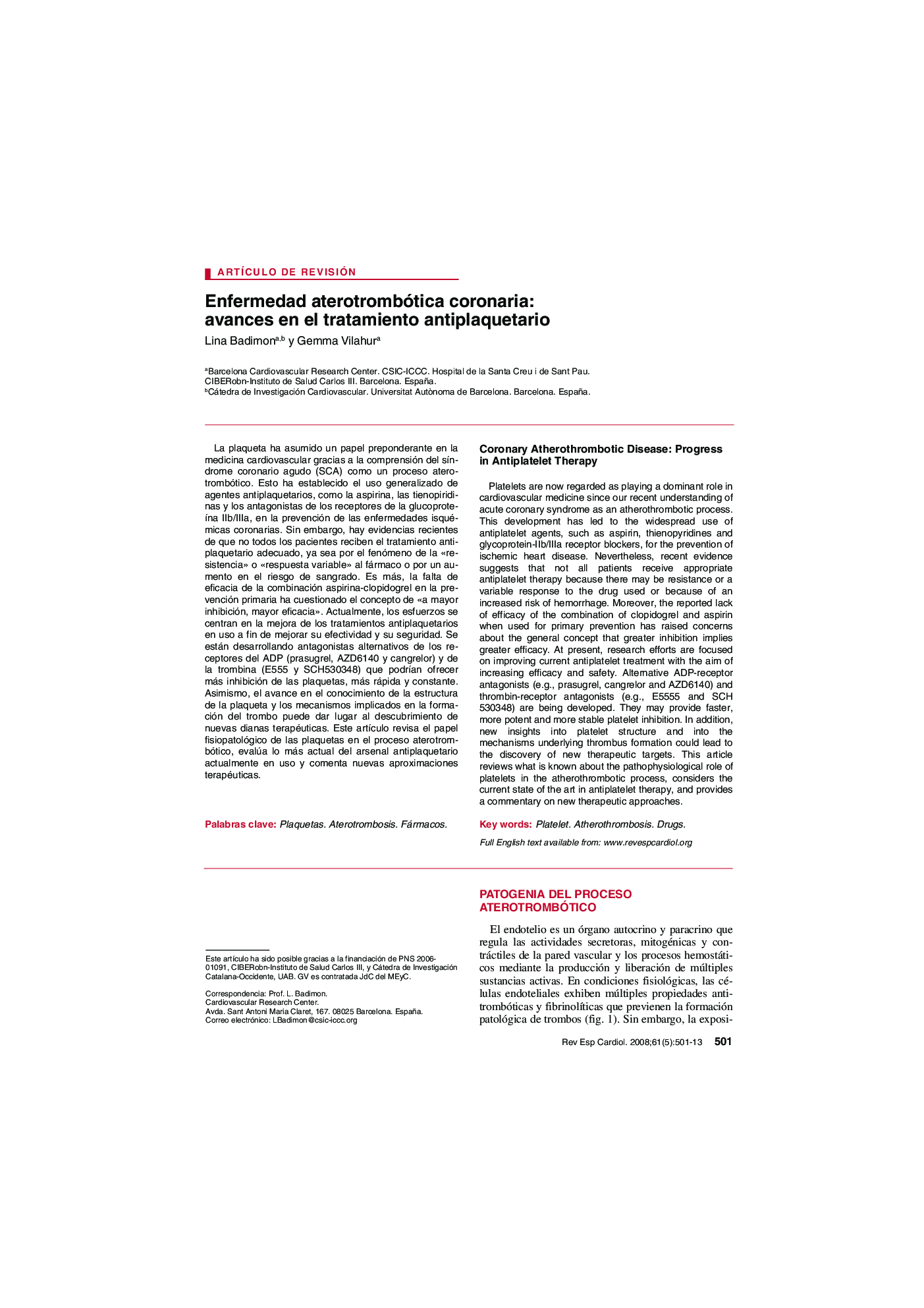| Article ID | Journal | Published Year | Pages | File Type |
|---|---|---|---|---|
| 3015596 | Revista Española de Cardiología | 2008 | 13 Pages |
Abstract
Platelets are now regarded as playing a dominant role in cardiovascular medicine since our recent understanding of acute coronary syndrome as an atherothrombotic process. This development has led to the widespread use of antiplatelet agents, such as aspirin, thienopyridines and glycoprotein-IIb/IIIa receptor blockers, for the prevention of ischemic heart disease. Nevertheless, recent evidence suggests that not all patients receive appropriate antiplatelet therapy because there may be resistance or a variable response to the drug used or because of an increased risk of hemorrhage. Moreover, the reported lack of efficacy of the combination of clopidogrel and aspirin when used for primary prevention has raised concerns about the general concept that greater inhibition implies greater efficacy. At present, research efforts are focused on improving current antiplatelet treatment with the aim of increasing efficacy and safety. Alternative ADP-receptor antagonists (e.g., prasugrel, cangrelor and AZD6140) and thrombin-receptor antagonists (e.g., E5555 and SCH 530348) are being developed. They may provide faster, more potent and more stable platelet inhibition. In addition, new insights into platelet structure and into the mechanisms underlying thrombus formation could lead to the discovery of new therapeutic targets. This article reviews what is known about the pathophysiological role of platelets in the atherothrombotic process, considers the current state of the art in antiplatelet therapy, and provides a commentary on new therapeutic approaches.
Related Topics
Health Sciences
Medicine and Dentistry
Cardiology and Cardiovascular Medicine
Authors
Lina Badimon, Gemma Vilahur,
